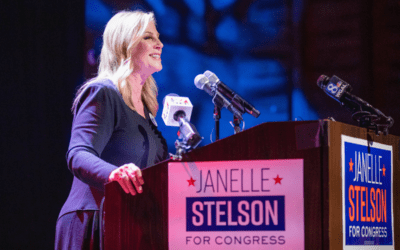
A customer walks through the Penrose Diner after eating indoors during the coronavirus, Tuesday, Sept. 8, 2020, in Philadelphia. (AP Photo/Matt Slocum)
“The move to 25% … was an attempt to flatten the curve in Pennsylvania. We were starting to see a troubling rise,” Wolf said at a news conference in Lancaster. “Now I think we’re at a point where we are ready to lift that, partially.”
Pennsylvania restaurants will be allowed to seat more patrons inside after Gov. Tom Wolf announced Tuesday he is relaxing restrictions on indoor dining, providing some relief to an industry that’s been hit hard by the coronavirus crisis.
Restaurants may increase indoor occupancy from 25% to 50% of capacity starting Sept. 21, more than two months after the Wolf administration, citing rising infection rates in some virus hot spots, imposed a new round of restrictions on the beleaguered hospitality industry.
“The move to 25% … was an attempt to flatten the curve in Pennsylvania. We were starting to see a troubling rise,” Wolf said at a news conference in Lancaster. “Now I think we’re at a point where we are ready to lift that, partially.”
Bar and restaurant owners have said they were unfairly blamed for rising virus case numbers, challenging the Wolf administration to provide evidence. At a recent House hearing, industry officials warned that thousands of establishments were in danger of closing permanently without relief from the state.
Establishments that want to increase capacity must certify to the state that they are complying with all public health guidelines. Those restaurants will then appear in a searchable state database called “Open & Certified Pennsylvania,” the administration said.
Other restrictions on the hospitality industry will still apply. Restaurants must stop selling alcohol at 10 p.m., and bars that don’t offer meal service will remain shut down.
“I think we’re in a position to recognize the hardship that this has caused the restaurants and at the same time continue to do what we can do to keep people safe,” Wolf, a Democrat, said Tuesday.
He also acknowledged that the statewide percent positivity rate went up last week. “Our percent positivity increased significantly this week, a sign that this virus is still affecting Pennsylvanians,” Gov. Wolf said. “We must continue our focus on taking actions to protect ourselves and others, such as wearing a mask, practicing social distancing, washing our hands and avoiding large gatherings. Together, Pennsylvanians can work to prevent the spread of the virus.”
Republican leaders in the House said bars and restaurants suffered a “lost summer” because of Wolf’s capacity restrictions.
“The governor’s announcement today is a step in the right direction, but opening restaurants to 50 percent is merely a break-even point for many of these small businesses and the order puts a number of restrictions on these establishments’ ability to do business,” House GOP spokesperson Jason Gottesman said in an email.
John Longstreet, head of the Pennsylvania Restaurant & Lodging Association trade group, said Tuesday’s announcement is welcome, but doesn’t go far enough to help an industry he said was “devastated” by the governor’s July 15 order.
He said bar seating should be permitted for meal service, as many establishments rely on bar seating to get to 50% capacity, and the curfew on alcohol sales should be lifted. He also questioned why establishments must serve food in order to stay open.
“While we are happy the governor is trying to address this, it needs to go further in order for it to have a real impact,” he said.
Wolf’s health secretary, Dr. Rachel Levine, said the rules are meant to prevent patrons, especially college students, mixing in bars.
“We don’t want people to congregate while they’re drinking,” she said.
Philadelphia lifted its own ban on indoor dining Tuesday, permitting restaurants to seat patrons inside for the first time in nearly six months.
The reopening came with several restrictions, including a 25% capacity seating limit and a prohibition on parties larger than four people — making it unclear if all the city’s restaurants would unlock their doors.
Movie theaters and performing arts spaces in Philadelphia also got the green light to reopen, albeit with restrictions, and criminal trials in the the city were expected to restart as potential jurors reported for screening.
Additional reporting by Kimberly Lawson.

For Rep. Susan Wild, supporting PA families includes reproductive rights and much more
Rep. Susan Wild wants to be very clear with Pennsylvanians: Donald Trump is committed to taking away women’s reproductive freedom, but he is not...

School districts working with anti-LGBTQ groups can cost your kids’ schools millions
Parents across South Central Pennsylvania are worried about the potential financial impacts working with anti-LGBTQ groups may have on their school...

VIDEO: Trump distances himself from his anti-abortion views
Donald Trump appeared on WGAL on Tuesday and continued to distance himself from his anti-abortion views claiming that reproductive rights are now a...

VIDEO: Community pushback gets school board to rescind decision on denying gay actor’s visit
Cumberland Valley School Board offered a public apology and voted to reinstate Maulik Pancholy as a guest speaker a week after the board voted to...

VIDEO: Project 2025 brings nuclear armageddon back into vogue
Project 2025 is a titanic document, with plans ranging from cutting half of all government employees to targeting reproductive rights on a scale...




